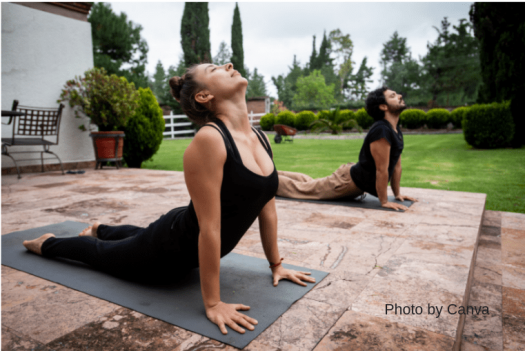By: Sarah Pittman BS in dietetics from the University of Illinois at Urbana-Champaign
The benefits of physical exercise are endless, physically, emotionally and even socially; exercise can lead you to a happier and healthier life. But does the location of physical activity impact your wellbeing more or less than others? Research has been examining the benefits of “green exercise” which is simply taking your exercise into nature.
Although working out indoors has wonderful health benefits, the changing of scenery when exercising can enhance the benefits that a person acquires from participating in physical activity; and physical activity does not discriminate. “We have found no groups who have not benefitted: all ages, genders, ethnicities, and social classes respond positively to green exercise.” (Pretty J., Rogerson, M., Barton, J., Green Mind Theory: How Brain-Body-Behaviour Links into Natural and Social Environments for Healthy Habits).
Research has found that no matter what activity you do out in nature, whether it is an intense physical activity like hiking, running or yoga to minimal activity including gardening, fishing or canoeing can benefit your overall wellbeing. The specific benefits of activity in nature include decreasing obesity, stress, social isolation and decreasing or minimizing mental illness. One study even found that increasing activity in nature could help with violence in some individuals, (Veloso, S., Loureiro, A., Exercise, and Nature: A Relevant Combination to Health and Well-Being).
Overall, any type, amount or location of physical activity will positively benefit your health. But adding green exercise into your daily or weekly routine can give you a bigger bang for your buck when it comes to the impact it has on your health!
References:
ERICSON C. It’s Spring–Throw the Doors Open and Get Outside! American Fitness. 2017;35(2):56-59. http://www.library.illinois.edu.proxy2.library.illinois.edu/proxy/go.php?url=http://search.ebscohost.com.proxy2.library.illinois.edu/login.aspx?direct=true&db=hxh&AN=122675126&site=eds-live&scope=site. Accessed October 2, 2018.
Krinski K, Machado DGS 2,., Lirani LS., et al. Let’s Walk Outdoors! Self-Paced Walking Outdoors Improves Future Intention to Exercise in Women With Obesity. Journal of Sport & Exercise Psychology. 2017;39(2):145-157. doi:10.1123/jsep.2016-0220.
Maier J jmaier@umd. ed., Jette S. Promoting Nature-Based Activity for People With Mental Illness Through the US “Exercise Is Medicine” Initiative. American Journal of Public Health. 2016;106(5):796-799. doi:10.2105/AJPH.2016.303047.
Pretty J, Rogerson M, Barton J. Green Mind Theory: How Brain-Body-Behaviour Links into Natural and Social Environments for Healthy Habits. INTERNATIONAL JOURNAL OF ENVIRONMENTAL RESEARCH AND PUBLIC HEALTH. 14(7). doi:10.3390/ijerph14070706.
Veloso S, Loureiro A. Exercise and Nature: A Relevant Combination to Health and Well-Being. Revista Iberoamericana de Psicología del Ejercicio y el Deporte. 2017;12(2):313-319.
Photo by Canva.















